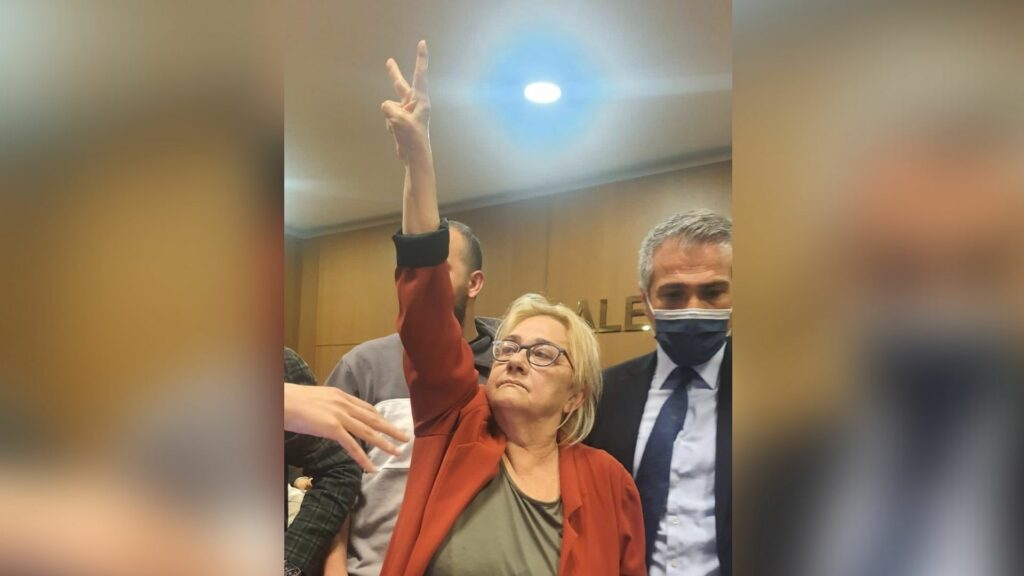Mücella Yapıcı, a prominent architect and a defendant in the Gezi Park trial who was released from an İstanbul prison in September, has recounted the poor prison conditions she faced as an elderly woman in an interview published by the T24 news website on Wednesday.
On Sept. 28 the Supreme Court of Appeals of Turkey upheld the convictions of five defendants including businessman and civil society leader Osman Kavala in the Gezi Park trial, while it overturned the convictions of three others.
Regarding the three defendants whose convictions were overturned, the court ruled for the release of two, one of them being architect Yapıcı, who was subsequently released from the Bakırköy Women’s Prison.
Yapıcı told T24 journalist Murat Sabuncu that she had drafted one of the architectural assessment reports for the Bakırköy Women’s Prison before it was opened, and upon entering the prison, she witnessed all the problems she had pointed out in the report.
“First of all, there are over 3,000 doors. Each of these doors has two bolts, and they are difficult to open. It’s impossible to escape during a fire or earthquake. … Who will open the door for you? Where will the person opening the door hide? There is no green space, and all the measurements are based on male standards,” the architect said.
Yapıcı also described how hard it was for her as an older woman to use the traditional Turkish squat toilets in the prison.
“Due to my age and illnesses, I cannot sit down or stand up easily. When I entered the bathroom [in the prison], I used to spread a garbage bag on the floor, and crawling, I could reach the door and pull myself up by holding onto the door handle. It was torture,” she said.
According to the architect, after reporting this issue to the authorities, they provided her with a plastic chair with the middle part removed, instructing her to use it for her toilet needs.
“Is this even possible? How am I supposed to use this? … This [chair] served one purpose; I placed it in front of me and held onto it to stand up. … I realized I had aged and become an elderly woman in that prison,” Yapıcı added.
She also said that children, after outgrowing cribs, are required to sleep in a single bed with their mothers until the age of six and that the constant malfunctioning of elevators significantly negatively affects elderly, sick, disabled and pregnant women.
Yapıcı also talked about her frequent doctor visits during which she was kept in handcuffs, which she said were so tight she had bruises on her wrists.
She said she was being taken to the doctor regularly under difficult circumstances although she did not ask to go.
Ahmet Çiçek from the Human Rights Association (IHD) told the Gazete Duvar news website in June that conditions in Turkish prisons are inhumane and that human rights violations have become worryingly common, especially since the prison population had skyrocketed in recent years under the Justice and Development Party (AKP) government due to its crackdown on dissidents.
As part of a crackdown launched by President Recep Tayyip Erdoğan in the aftermath of an attempted coup in 2016, Turkey has jailed tens of thousands of people on terrorism-related charges. Most of them were merely critical of the government and had not engaged in any criminal activity.
The Turkish government was previously scrutinized by the European Court of Human Rights (ECtHR) for abysmal conditions in Turkish prisons.
According to Turkish media, the government was posed questions about overcrowding, sanitary conditions and access to open-air areas as well as the social, cultural and sports activities the inmates are allowed to participate in.

